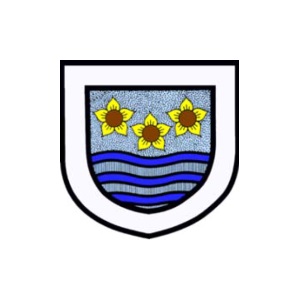Computing
In computing we strive to give our pupils the life skills that will enable them to embrace and utilise new technology in a socially responsible and safe way. We encourage our children to become independent users of computing technologies, gaining confidence and enjoyment from their activities so that it is an integral part of their life. Children will work with a range of algorithms to design, write and debug programmes to accomplish specific goals. They will understand various computer networks including the Internet and the opportunities they offer for communication and collaboration. Computing is valued as a teaching and learning tool across the curriculum: it is applied to real life situations and used to create purposeful products. Computing significantly enhances teaching and learning in all subjects by enabling rapid access to knowledge, information and experiences from a wide range of sources. Internet safety is an integral part of all computing taught at Crosscanonby St John's; we strive to ensure our children use technology safely and respectfully, keeping information private and knowing how to act and where to seek help should any issues arise. We want our children to leave primary school excited about the ever-changing technology in our world and be equipped with the skills to use it within their lives.
Each class has an hour each week to learn computing and we aim to ensure that pupils also have access to technology at other times in the week so that they can continue to develop basic ICT skills as well. The school has a mix of laptops and tablets so ICT can be used in other subjects. All classrooms are networked and have supervised access to the Internet. Each classroom has an interactive whiteboard to enhance lessons in every subject.
The school also has digital cameras, Beebots and iPads.
We use the PurpleMash units of work as our scheme of work to teach lessons in computing because we believe that consistency is key in ensuring quality learning for all our children. One of the key benefits of Purple Mash is that the Computing Scheme of Work addresses each of the three strands of the National Curriculum Computing curriculum – Computer Science, Information Technology and Digital Literacy. The scheme of work takes a spiral approach to learning and provides highly integrated units which are intended to introduce, build and deepen knowledge for all our children.
Learning for our children, in Computing, begins in the Early Years in the following areas of learning:
Nursery
Personal, Social and Emotional Development:
The children will learn to remember rules without needing an adult to remind them.
Physical Development:
We will match their developing physical skills to tasks and activities in the setting.
Understanding the World:
The children will explore how things work.
Reception
Personal, Social and Emotional Development:
The children will show resilience and perseverance in the face of a challenge.
They will know and talk about the different factors that support their overall health and wellbeing, for example: sensible amounts of ‘screen time’.
Physical Development:
The children will develop their small motor skills so that they can use a range of tools competently, safely and confidently.
Expressive Arts and Design:
They will explore, use and refine a variety of artistic effects to express their ideas and feelings.
ELG
Personal, Social and Emotional Development - Managing Self:
The children will be confident to try new activities and show independence, resilience and perseverance in the face of challenge.
They will be able to explain the reasons for rules, know right from wrong and try to behave accordingly.
Expressive Arts and Design - Creating with Materials:
The children will safely use and explore a variety of materials, tools and techniques, experimenting with colour, design, texture, form and function.
Click on the link below to view the tables that show how progress in knowledge, in each of the three key strands, is developed throughout the children's time in our primary school, from EYFS to Key Stage 1 to Key Stage 2:
